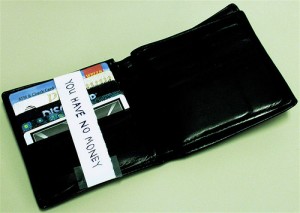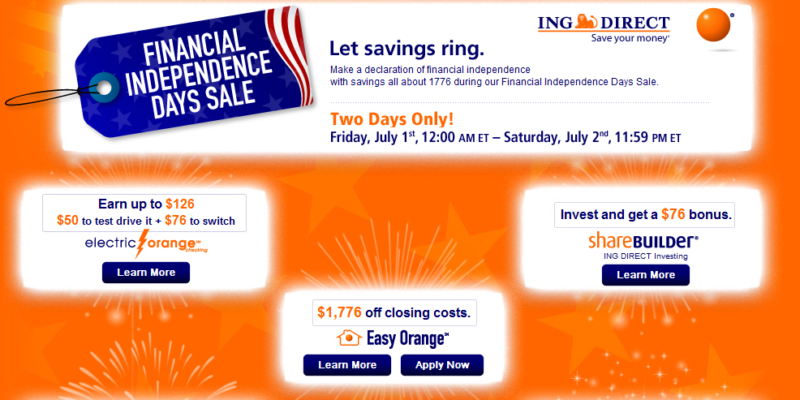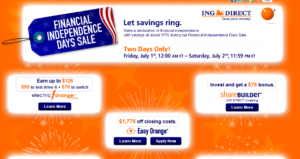What would your future-you have to say to you?
The no-pants guide to spending, saving, and thriving in the real world.
What would your future-you have to say to you?

In April, my wife and I decided that debt was done. We have hopefully closed that chapter in our lives. I borrowed, then purchased, The Total Money Makeover by Dave Ramsey.  budget” width=”300″ height=”213″ />We are almost following his baby steps. Our credit has always been spectacular, but we used it a lot. Our financial plan is Dave Ramsey’s The Total Money Makeover, with some adjustments.
budget” width=”300″ height=”213″ />We are almost following his baby steps. Our credit has always been spectacular, but we used it a lot. Our financial plan is Dave Ramsey’s The Total Money Makeover, with some adjustments.
The budget was painful, and for the first couple of months, impossible. We had no idea what bills were coming due. There were quarterly payments for the garbage bill and annual payments for the auto club. It was all a surprise. Surprises are setbacks in a budget.
When something came up, we’d start budgeting for it, but stuff kept coming up. We’re not on top of all of it, yet, but we are so much closer. We’ve got a virtual envelope system for groceries, auto maintenance, baby needs(we have two in diapers) and some discretionary money. We set aside money for everything that isn’t a monthly expense, and have a line item for everything that is. My wife is eligible for overtime and monthly bonuses. That money does not get budgeted. It’s all extra and goes straight on to debt, or to play catch-up with the bills we had previously missed. I figure it will take a full year to get all of the non-monthly expenses in the budget and caught up.
Ramsey recommends $1000, adjusted for your situation. I decided $1000 wasn’t enough. That isn’t even a month’s worth of expenses. We settled on $1800, plus $25/month. It’s still not enough, but it’s better. Hopefully, we’ll be able to ignore it long enough that the $25/month accrues to something worthwhile.
This is the controversial bad math. Pay off the lowest balance accounts first, then take those payments and apply them to the higher balance accounts. Emotionally, it’s been wonderful. We paid off the first credit card in a couple of weeks, followed 6 weeks later by my student loan. Since April, we’ve dropped nearly $10,000 and we haven’t made huge cuts to our standard of living. At least monthly, we re-examine our expenses to see what else can be cut.
We aren’t on this step yet. In step 2, we are consistently depositing more, making us more secure every month.
I have not stopped my auto-deposited contribution. It’s stupid to pass up an employer match. My wife’s company does not match, so she is currently not contributing.
We have started a $10 College fund.
I don’t see the point in handling this one separately. Our mortgage is debt, and when the other debts are paid, we will be less than a year from owning our house, free and clear. This is rolled in with step three. All debt is going away, immediately.
We have cut off most of our charitable giving. Every other year, it has been a significant percent of our income, and in a few more years, will be so again. The only exception to this is children knocking on the door for fundraisers. I have no problems with saying no to a parent fundraising for their kid, but when the kids is doing the work, door-to-door, especially in the winter, I buy something. My son’s school, on the other hand, gets fundraisers ignored. When they come home, I send a check to the school, ignoring the program. I bypass the overhead and make a direct donation.

If you want to make money, help someone get healthy, wealthy or laid.
This section was quick.
Seriously, those three topics have been making people rich since the invention of rich. Knowing that isn’t enough. If you want to make some money in the health niche, are you going to help people lose weight, add muscle, relieve stress, or reduce the symptoms of some unpleasant medical condition? Those are called “sub-niches”. (Side question: Viagra is a sub-niche of which topic?)
Still not enough.
If you’re going to offer a product to help lose weight, does it revolve around diet, exercise, or both? For medical conditions, is it a way to soothe eczema, instructions for a diabetic diet, a cure for boils, or help with acne? Those are micro-niches.
That’s where you want to be. The “make money” niche is far too broad for anyone to effectively compete. The “make money online” sub-niche is still crazy. When you get to the “make money buying and selling websites” micro-niche, you’re in a territory that leaves room for competition, without costing thousands of dollars to get involved.
Remember that: The more narrowly you define your niche market, the easier it is to compete. You can take that too far. The “lose weight by eating nothing but onions, alfalfa, and imitation caramel sauce” micro-niche is probably too narrowly defined to have a market worth pursuing. You need a micro-niche with buyers, preferably a lot of them.
Now the hard part.
How do you find a niche with a lot of potential customers? Big companies pay millions of dollars every year to do that kind of market research.
Naturally, I recommend you spend millions of dollars on market research.
No?
Here’s the part where I make this entire series worth every penny you’ve paid. Times 10.
Steal the research.
My favorite source of niche market research to steal is http://www.dummies.com/. Click the link and notice all of the wonderful niches at the top of the page. Jon Wiley & Sons, Inc. spends millions of dollars to know what topics will be good sellers. They’ve been doing this a long time. Trust their work.

You don’t have to concentrate on the topics I’ve helpfully highlighted, but they will make it easier for you. Other niches can be profitable, too.
Golf is a great example. Golfers spend money to play the game. You don’t become a golfer without having some discretionary money to spend on it. I’d recommend against consumer electronics. There is a lot of competition for anything popular, and most of that is available for free. If you choose to promote some high-end gear using your Amazon affiliate link, you’re still only looking at a 3% commission.
I like to stick to topics that people “need” an answer for, and can find that answer in ebook form, since I will be promoting a specific product.
With that in mind, pick a topic, then click one of the links to the actual titles for sale. The “best selling titles” links are a gold mine. You can jump straight to the dummies store, if you’d like.
Of the topics above, here’s how I would narrow it down:
1. Business and Careers. The bestsellers here are Quickbooks and home buying. I’m not interested in either topic, so I’ll go into “More titles”. Here, the “urgent” niches look like job hunting and dealing with horrible coworkers. I’m also going to throw “writing copy” into the list because it’s something I have a hard time with.

2. Health and Fitness. My first thought was to do a site on diabetic cooking, but the cooking niche is too competitive. Childhood obesity, detox diets and back pain remedies strike me as worth pursuing. I’m leaning towards back pain, because I have a bad back. When you’ve thrown your back out, you’ve got nothing to do but lie on the couch and look for ways to make the pain stop. That’s urgency.
3. Personal Finance. The topics that look like good bets are foreclosures and bankruptcies. These are topics that can cost thousands of dollars if you get them wrong. I hate to promote a bankruptcy, but some people are out of choices. Foreclosure defense seems like a good choice. Losing your home comes with a sense of urgency, and helping people stay in their home makes me feel good.
4. Relationships and Family. Of these topics, divorce is probably a good seller. Dating advice definitely is. I’m not going to detail either one of those niches here. Divorce is depressing and sex, while fun, isn’t a topic I’m going to get into here. I try to be family friendly, most of the time. Weddings are great topic. Brides are planning to spend money and there’s no shortage of resources to promote.
So, the niches I’ve chosen are:
I won’t be building 9 niche sites in this series. From here, I’m going to explore effective keywords/search terms and good products to support. There’s no guarantee I’ll find a good product with an affiliate program for a niche I’ve chosen that has keywords that are both highly searched and low competition, so I’m giving myself alternatives.
For those of you following along at home, take some time to find 5-10 niches you’d be willing to promote.
The important things to consider are:
1. Does it make me feel dirty to promote it?
2. Will there be customers willing to spend money on it?
3. Will those customers have an urgent need to solve a problem?
I’ve built sites that ignore #3, and they don’t perform nearly as well as those that consider it. When I do niche sites, I promote a specific product. It’s pure affiliate marketing, so customers willing to spend money are necessarily my target audience.
This topic has been blatantly stolen from Budgets are Sexy.
1) How do you spend: cash, debit or credit? I use cash almost exclusively. I live in Minnesota and have two small children, so bundling the brats up to go inside the gas station to pay is nuts. Gas stations get the debit card. Online shopping, or automatic payments set up in the payee’s system are done on a credit card that gets paid off every month.
[ad name=”inlineright”]2) Do you bank online? How about use a financial aggregator (Mint, Wesabe, Yodlee, etc.)? I bank online. I use USBank for my daily cash flow, INGDirect for savings management and Wells Fargo for business. I used Mint strictly as a net worth calculator and alerting system. I use Quicken to manage my money and a spreadsheet for my budget, but I really like the quick, hands-off way that Mint gathers my account information and emails low balance alerts.
3) What recurring bills do you have set on autopay? Absolutely everything except daycare, 2 annual payments, and 1 quarterly payment.
4) How are your finances automated? I use USBank’s billpay system, instead of setting up autopayments at every possible payee. This gives me instant total control and reminders before each payment. The exceptions are my mortgage, netflix, and Dish. My mortgage company takes the money automatically from my checking. The other two hit a credit card automatically. Our paychecks are direct-deposited and automatically transferred to the different accounts and banks, as necessary.
5) Do you write checks? If so, how often? Once per week, for daycare. Occasionally for school fundraisers.
6) Where do you stash your short-term savings? I have quite a few savings accounts with INGDirect to meet all of my savings goals. For the truly short term, I add a line item in Quicken and just leave the money in my checking account.
Who’s next?


I just got an email from INGDirect. To celebrate Independence Day, they are having a sweet, sweet sale.
You can:
Take advantage of all of that and you’ll get $2054 in cash or discounts.
Seriously, this deal rocks. If you don’t have an INGDirect account, get one. There are no overdraft fees and no monthly fees.
The sale ends tomorrow at midnight, so hurry.
I’m not a fan of New Year’s Resolutions. They are generally drunken promises made on December 31st that are broken by the middle of January, if they are remembered at all. I don’t make resolutions.
My goal for 2010 is to complete one major self-improvement project each month. That’s an entire year of 30-day projects. As each month goes on, I will be updating this blog with the status of each project. Some of the projects will be physical, some will be mental, some will be improvements on my relationships. My goal is to do something meaningful, useful and challenging each month.
Here’s my list: